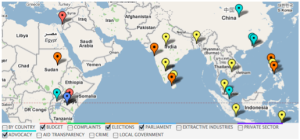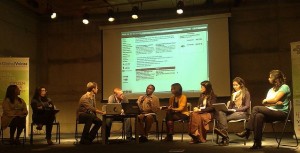Yesterday, three bombs went off in Kampala, one at an Ethiopian restaurant and two at the Kyadondo Rugby Club. Both places were packed with people watching the final game of the World Cup.
More than three years ago, I wrote about why I opposed sending Ugandan troops to Somalia. At the time, I noted that “insurgents have ‘vowed to kill the incoming peacekeepers’ and have been launching almost daily attacks in Mogadishu, and Eritrea has warned that the presence of Ugandan forces could prompt a full-out war.”
Yesterday, three bombs went off in Kampala, one at an Ethiopian restaurant and two at the Kyadondo Rugby Club. Both places were packed with people watching the final game of the World Cup. Uganda police are blaming Somali militant group al-Shabab for the attacks. A leader of the group, which has ties to al-Qaeda, recently announced, “We urge our brothers from Chechnya, Pakistan, Afghanistan and from anywhere around the world to attack the diplomatic missions of Uganda and Burundi.”
Al-Shabab has not yet claimed responsibility for the attacks, but the police and the media seem to be taking their role as a given. If the bombs are indeed traceable to them, this would be the first time al-Shabab has operated outside of Somalia.
I heard about the bombings in Kampala on Twitter last night and have been reloading Google Reader since looking for more news. As far as I can tell, the blogren and my other friends in Kampala are all safe, though obviously shaken up. Baz pointed out that the location of the attacks has meant that Twitter and Facebook have played a huge role in spreading news:
Because of the location of the attacks, for once, it’s us, The Web 2.0 generation, that is affected, so we are watching our twitter and facebook feeds with trepidation, like any second now…
Thanks to those of you who’ve blogged and tweeted and commented, letting me know you’re safe. I’ve hastily pulled together the blog posts I could find for a post on Global Voices:
Soccer fans gathered in bars and restaurants around the globe to watch the final game of the World Cup last night. In Uganda, these celebrations were interrupted when bombs exploded at two popular nightlife spots in Kampala, the country’s capital.
Read more »
I’ll keep checking throughout the day in case there’s any more news. The Daily Nation is reporting that Uganda’s increasing, rather than decreasing, the number of troops it has in Somalia. Blogren, if you have anything to add, you know where to find me. My thoughts are with you and your families, and I’m praying that these are isolated incidents, rather than the precursor to the full-out war Eritrea predicted three years ago.
Also, in the course of writing the GV post I came across these photos by Trevor Snapp, a documentary photographer in Kampala. He understandably would prefer to be paid for his amazing work and has asked that I not replicate the photos on GV, but I highly recommend that you check them out.
UPDATE: Trevor has since decided to allow Global Voices to use one of his photos, free of charge, in the post. A million thanks to him for supporting nonprofit citizen media!

